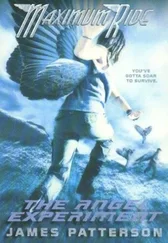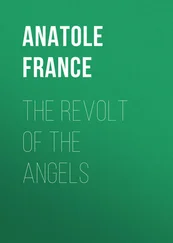Yukio Mishima - The Decay Of The Angel
Здесь есть возможность читать онлайн «Yukio Mishima - The Decay Of The Angel» весь текст электронной книги совершенно бесплатно (целиком полную версию без сокращений). В некоторых случаях можно слушать аудио, скачать через торрент в формате fb2 и присутствует краткое содержание. Год выпуска: 2010, Издательство: CCV Digital, Жанр: Старинная литература, на английском языке. Описание произведения, (предисловие) а так же отзывы посетителей доступны на портале библиотеки ЛибКат.
- Название:The Decay Of The Angel
- Автор:
- Издательство:CCV Digital
- Жанр:
- Год:2010
- ISBN:нет данных
- Рейтинг книги:5 / 5. Голосов: 1
-
Избранное:Добавить в избранное
- Отзывы:
-
Ваша оценка:
- 100
- 1
- 2
- 3
- 4
- 5
The Decay Of The Angel: краткое содержание, описание и аннотация
Предлагаем к чтению аннотацию, описание, краткое содержание или предисловие (зависит от того, что написал сам автор книги «The Decay Of The Angel»). Если вы не нашли необходимую информацию о книге — напишите в комментариях, мы постараемся отыскать её.
The Decay Of The Angel — читать онлайн бесплатно полную книгу (весь текст) целиком
Ниже представлен текст книги, разбитый по страницам. Система сохранения места последней прочитанной страницы, позволяет с удобством читать онлайн бесплатно книгу «The Decay Of The Angel», без необходимости каждый раз заново искать на чём Вы остановились. Поставьте закладку, и сможете в любой момент перейти на страницу, на которой закончили чтение.
Интервал:
Закладка:
Honda had noticed numbers of Kyoto women with parasols, not often seen in Tokyo. Some of the faces beneath were shining, some—because of the designs on the parasols, perhaps—were dark. Some were beautiful shining, some were beautiful dark.
As they turned from the southern outskirts of Yamashina they were in suburban wastes, a region of small factories burning in the summer sun. Waiting with several women and children at a bus stop was a pregnant woman, warm in a bold Western print. The faces wore a certain stagnation, as of tea leaves floating on the torrents of life. Beyond was a dusty tomato patch.
The Daigo district was a clutter of all the dreary details of new construction, to be seen throughout Japan: raw building materials and blue-tiled roofs, television towers and power lines, Coca-Cola advertisements and drive-in snack bars. Among heaps of rubble below cliffs where wild daisies stabbed at the sky were automobile dumps, blue and yellow and black, piled precariously one on the other, the gaudy colors molten in the sun. At this sad accumulation, kept hidden at most times by the automobile, Honda thought of an adventure story he had read as a child, and of the heaps of ivory in the swamp where elephants go to die. Perhaps, sensing the approach of death, automobiles too gather at their own graveyards. In any event, the brightness, the openness, the want of shame seemed to him quite automobilish.
From Uji the hills were for the first time green. A bill-board proclaimed “Delicious Chilled Sweets.” Bamboo leaves arched over the road.
They crossed Moon Bridge in Uji and were on the old Nara Highway. They passed Fushimi and Yamashiro. A sign informed them that Nara was twenty miles distant. Time went by. At each marker Honda thought of the expression “milestones on the way to the grave.” It seemed to him inconceivable that he would return over the same road. Sign followed sign, marking clearly the road he must travel. Nineteen miles to Nara. A mile nearer the grave. He opened a window, stealing an inch from air-conditioning, and the cicadas were ringing in his ears, as if the whole world were sounding in solitude under the summer sun.
Another filling station. More Coca-Cola.
The beautiful green embankment of the River Kizu stretched far away to the right. It was deserted, roily clouds defining its handsome groves. Blue patches glowed in the sky.
And what, thought Honda vacantly, might it be? The green platform was like a doll stand. The turbulent clouds made it seem that dolls had been lined up and then lost. Or perhaps transparent rows of dolls were still there. Would they be mortuary images? Perhaps images of darkness shattered by a tempest of light still left traces against the sky; and that was why the embankment was so grand, so solemnly respectful. It raised into the sky the light left behind by rows of dolls. Or perhaps the light which he seemed to see was the negative of a bottomless darkness.
He was aware of eyes once again seeking to go behind objects. They were what he had banned as he left the hotel. If he let them have their way the concrete world would once again collapse like a dike from the hole pierced by his glance. He must persevere yet a little more. He must hold it yet a little longer, the work of glass so delicate and ready to break.
The Kizu lay to their right for a time, its many shoals below them. A power line sagged down over it, as if melted and bent by the heat.
Presently the road turned to cross the Kizu on a steel bridge, and a sign told them that Nara was only five miles away. They crossed numbers of white country lanes bordered by grasses that had not yet sent forth plumes. The bamboo thickets were dense. The young bamboo leaves filled with sunlight as with warm water wore a soft, golden sheen, like the pelts of fox cubs, against the silent black of the evergreens.
Nara came into view.
As they descended through the pines along the hills, the great, soaring, protecting roof of the Tōdaiji and the golden kite tails at its gables were Nara.
The car moved through quiet streets, past plain, awning-shaded old shops with white gloves and other wares hung out for sale. They came to Nara Park. The sun was stronger, the cicada calls that hammered at the back of Honda’s head were intenser. White spots on summer deer floated up through dappled sunlight.
Turning onto the Tenri Highway, they passed through shining fields. To the right from a casual little bridge a road led to Obitoké and Obitoké Station; to the left, another to the hills at the base of which lay the Gesshuuji. Fringing the paddies, it was now paved, and the drive to the lower gate was an easy one.
30
 THEY COULD perfectly well drive to the mountain gate, a considerable distance up the hill, altogether too far for an old man to walk, said the driver, looking up at the yet fiercer sun in the cloudless sky; but Honda refused, and told him to wait at the lower gate. He had to know for himself Kiyoaki’s sufferings of sixty years before.
THEY COULD perfectly well drive to the mountain gate, a considerable distance up the hill, altogether too far for an old man to walk, said the driver, looking up at the yet fiercer sun in the cloudless sky; but Honda refused, and told him to wait at the lower gate. He had to know for himself Kiyoaki’s sufferings of sixty years before.
Leaning on his stick, he looked down from the gate, his back to the shade that invited from within.
Songs of cicadas and crickets filled the air. Into such quietness was woven the roar of automobiles on the Tenri Highway, beyond the fields. There were no automobiles on the road before him. White gravel delicately lined the shoulders of the road.
The serenity of the Yamato Plain was as it had always been. It lay flat as the world of man. Obitoké shone in the distance, its roofs like little shellfish. A trace of smoke hung over it. Perhaps it now had small factories. The inn where Kiyoaki had lain ill was at the foot of a flagstone slope such as was probably to be found in the village even now; but he thought it would be useless to look for the inn itself.
An endlessly blue sky arched over village and plain. Clouds trailed tatters of white satin like mirages from the misted hills beyond. The upper lines cut into the sky with a clear, statue-like beauty.
Honda squatted down, overcome by heat and fatigue. He felt as if the malign light from the sharp blades of summer grass were stabbing at his eyes. He felt that decay had been smelled out by a fly that brushed past his nose.
With his eyes he reprimanded the driver, who had climbed from the car, and, worried, was coming toward him.
He was beginning to doubt that in fact he could reach the mountain gate. His back and his stomach were aching. He waved off the driver and went inside the gate, determined to be healthy for as long as the man was watching. Gasping for breath, helped by the curves, he made his way up the uneven gravel road, catching through the corner of his left eye the bright yellow of moss, like a sickness, on the trunk of a persimmon tree, and, on his right, the lavender heads of bellflowers from which most of the petals had fallen.
The shadows that blocked off the road ahead had a sort of mystic quiet. The uneven road, which would be a river bottom in a rain, shone where the sun struck it like mineral outcroppings, and whispered with the coolness of its shadows. There was a reason for the shadows, but Honda doubted that it was in the trees themselves.
He asked himself and his stick at which shadow he might rest. The fourth shadow, already invisible from the automobile, quietly invited him. Coming to it, he sat, almost collapsed, on a chestnut root.
“In the beginning,” thought Honda, as if of undisputed reality, “it was decided that I would rest on this day at this moment in the shade of this tree.”
Sweat and insect songs, forgotten while he was walking, surged forward as he sat down. He pressed his forehead against his stick. The pressure of the silver head drowned out the pain throbbing in his stomach and back.
Читать дальшеИнтервал:
Закладка:
Похожие книги на «The Decay Of The Angel»
Представляем Вашему вниманию похожие книги на «The Decay Of The Angel» списком для выбора. Мы отобрали схожую по названию и смыслу литературу в надежде предоставить читателям больше вариантов отыскать новые, интересные, ещё непрочитанные произведения.
Обсуждение, отзывы о книге «The Decay Of The Angel» и просто собственные мнения читателей. Оставьте ваши комментарии, напишите, что Вы думаете о произведении, его смысле или главных героях. Укажите что конкретно понравилось, а что нет, и почему Вы так считаете.











